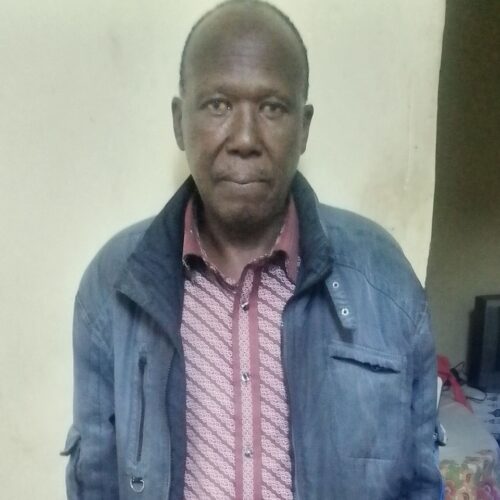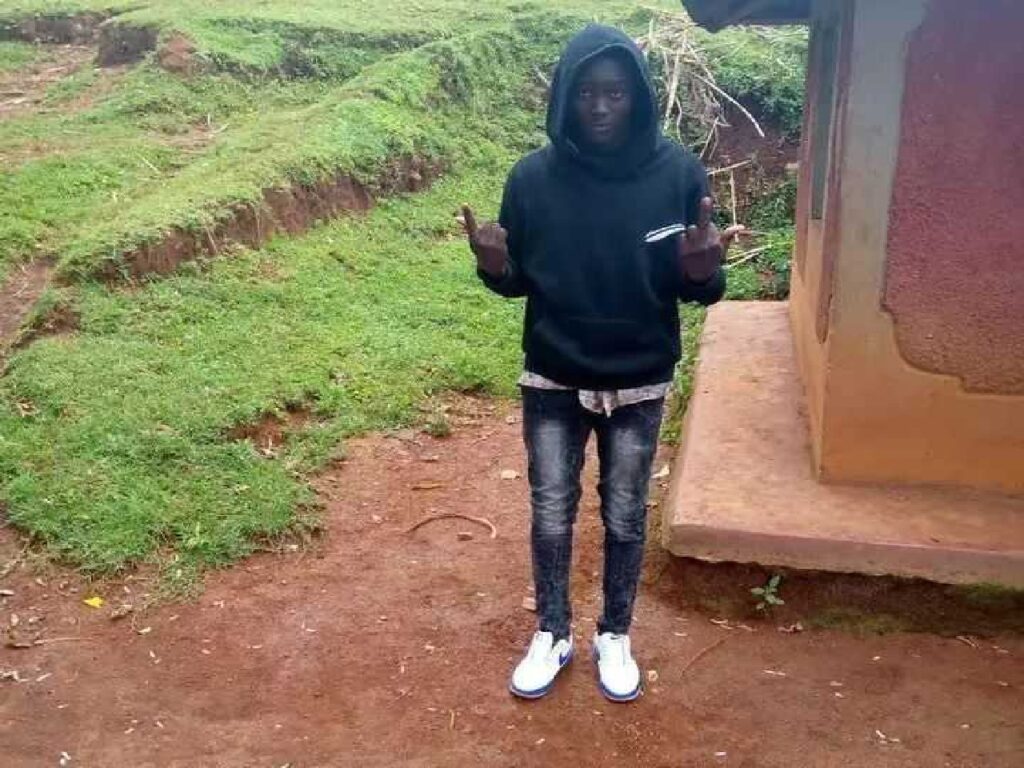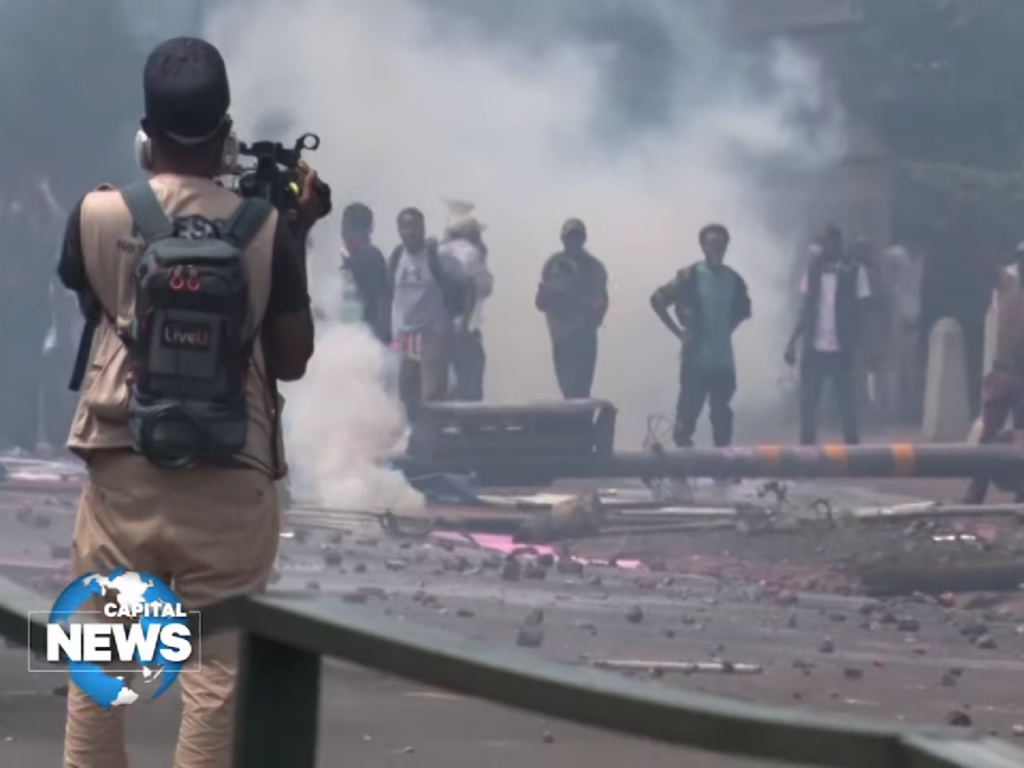Gen-Z protests in Kenya turn fatal: father finds son shot dead by police amid anti-government unrest
I stood there speechless and heartbroken, wishing death upon myself. Blood covered him, and a visible hole in his stomach marked the place the bullet struck. My wife cried out in anguish.
- 2 years ago
August 1, 2024

NAIROBI, Kenya — On Tuesday, June 25, 2024, my 19-year-old son Brian woke up at 8:00 a.m. brimming with joy and good health. With a bright smile, he said, “Dad, I’m not taking the cows to graze today; I’m going to town.” I agreed to let him go, trusting my son, though I did not know his plans. Little did I realize this would be the last time I saw my son alive.
At 9:00 a.m., Brian left for Narok town, west of Nairobi, about four kilometers from our place. While watching TV, Brian’s mother repeatedly mentioned the intensified protests in Nairobi. Despite her concerns, I assumed the protests remained far from Narok town and went out to check on my grazing cattle. I remained unaware of the situation’s severity.
Around 2:00 p.m., When I returned home for lunch, our neighbor Baba Lulu delivered shocking news during the meal: “Protesters took over Narok town.” Worried about Brian, I immediately tried calling him several times, but he never answered his phone.
Read more stories from Kenya at Orato World Media.
Family’s distress grows as son goes missing during protests in Kenya
At 19 years old, my son Brian stood on the brink of adulthood, eagerly preparing to join Jaramogi Oginga University in September. His independence shone through as he managed his errands and responsibilities. However, fate took an unexpected turn for him at an early age.
On that day, I followed my usual routine and returned home from grazing my cattle to have lunch. During the meal when my neighbor Baba Lulu visited, our conversation shifted to politics. That was when Baba Lulu dropped a bombshell. Protesters, known as “Gen Z,” [young protesters born in the late 1990s and early 2000s] had taken over Narok town.
The news genuinely shocked me. I never anticipated the Nairobi protests erupting in our peaceful town. My mind raced to Brian and I felt the need to reach him urgently. As a concerned father, I wanted to urge him not to engage with the police or participate in the demonstrations. I dialed Brian’s number repeatedly but got no answer. His mother shared my panic and made equally futile calls. We felt hopeless and desperate.
By 4:00 p.m., panic completely overtook Brian’s mother and she began praying fervently. I tried to reassure myself, thinking that perhaps Brian was hiding somewhere, or someone stole his phone during the protests. Around 7:00 p.m., after numerous unanswered calls, we decided to head to Narok town to assess the situation. With Brian’s mother and our neighbor Baba Lulu, we witnessed a horrifying scene. By then, the town looked deserted, but tension lay thick in the air. Local vendors who usually sold street food, groceries, and clothes disappeared. The place felt desolate.
The devastating discovery: son found shot dead after desperate search
Upon reaching town, we wasted no time and hurried to the police station. We wanted to inquire about Brian’s whereabouts, suspecting that the authorities might have arrested him for participating in the protests. However, we found no sign of Brian among those detained. I tried calling him again, but his phone remained switched off.
We searched the general hospital but found no trace of him there either. We searched across Narok, hoping to spot him or find news that would guide us. Unfortunately, around 9:00 p.m., we returned home, without any clue. My wife, Brian’s siblings, and I stayed awake all night, hoping he went to see a former classmate.
The following day, at 7:00 a.m., we set off once again for town. With my wife and neighbor, we aimed to report Brian missing and hoped for authorities to help us trace him. During the journey in a matatu [Kenya’s public transport], a nurse recounted how the police shot a man dead the previous day. Fear gripped me, and I saw the worry in my wife’s eyes, already red and sorrowful. Nevertheless, I reassured myself Brian could not possibly be dead.

Convinced of his survival, I whispered to those around me, “Let’s go to the morgue,” eager to confirm my instincts. Reality shattered my confidence when we reached the morgue. Hastily, my friend asked one attendant, “Show us the man who got shot during the demonstrations.” My heart ached as the attendants revealed the lifeless body. It was Brian, my dear son.
I stood there speechless and heartbroken, wishing death upon myself. Blood covered him, and a visible hole in his stomach marked the place the bullet struck. My wife cried out in anguish. I lacked the courage to face her, feeling I failed to protect our son. Later, a friend arranged a taxi, and we returned home, defeated. Feeling utterly shattered, I struggled to break the news to Brian’s siblings.
Despite the police’s false narrative, eyewitnesses confirm Brian was shot by officers
The day after finding my son dead, the police called and asked me to record a statement at the station. I wondered about the importance of that statement. Would it bring my son back? Would it stop other young men from being killed? Despite my reservations, I obliged and went to the station. I entered with my friend Baba Lulu, who stayed with me every step of the way.
As I stepped inside, I met the Commanding Station officer who offered his condolences. However, what followed seemed a dubious explanation. He claimed the Kenyan police did not shoot my son, Brian. Instead, he asserted that armed individuals fired the fatal shots during a confrontation with rioters. I knew instinctively this was a false narrative. In our locality, civilians rarely owned guns; even local thieves wielded machetes or crude weapons.
Eyewitnesses contradicted the OCS’s account, confirming the police shot my son while trying to repel protesters. They rushed him to the hospital, where doctors pronounced him dead. Shockingly, they took Brian’s body to the morgue and left it there. They did not contact his family, even though his phone was on. It seemed they wanted Brian’s body to remain undiscovered for days, perhaps to claim that thieves attacked him.
The pain runs deep. My son, Brian, participated in a constitutional protest—a “sin,” they call it. I find justice elusive and see no accountability. Young lives vanish, and no one holds anyone accountable. The police defend their actions, but I cling to hope. Perhaps, miraculously, someone will bring the perpetrator to justice. I saw Brian as my beacon of hope, lifting our family out of poverty. Sadly, I now prepare to bury him, my heart heavy with grief.



































































































































































































































































































































































































































































